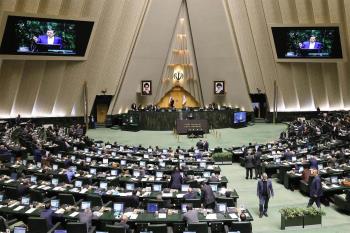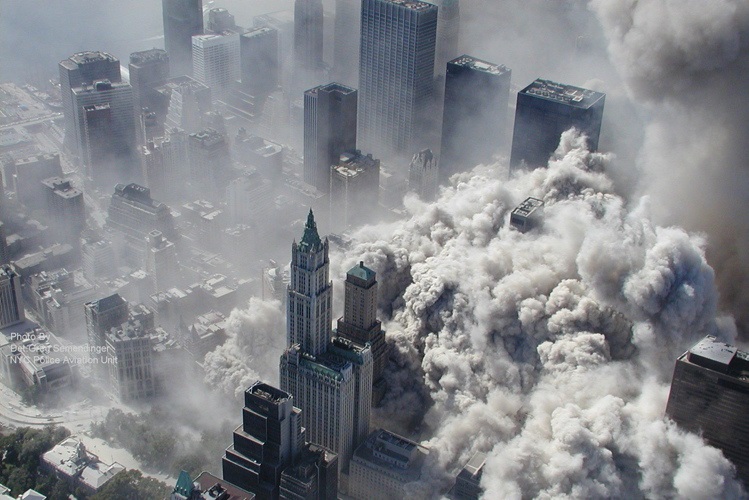Alwaght-Today, 11th September 2016, the world is marking fifteen years since the September 11, 2001 terrorist attacks in the United States. These attacks had far-reaching implications which continue to be felt across the world.
During the 9/11 attacks, 19 persons, 15 of them Saudi Arabian citizens, hijacked four US passenger planes in a meticulously planned mission. The attackers were reportedly members of the Al Qaeda terrorist network led by Osama bin Laden, a Saudi millionaire who had taken refuge in Afghanistan. The objective of hijacking the passenger planes was to use them as some sort of missiles to attack important economic and political centers in the US.
The hijackers flew the planes into the World Trade Center in New York City, the Pentagon in Washington, D.C., and into a field in Pennsylvania.
Saudi Involvement
Even though the Saudi Arabian government did not have a direct role in these terrorist attacks, but according to a US Congress report, some of the hijackers had contacted Saudi political and diplomatic officials in the US. Incriminating evidence shows that some relatives and close confidants of the 9/11 hijackers received monthly salaries from Saudi regime diplomats in the US.
In July, the US Congress released 28 pages of a congressional report on the September 11, 2001 terrorist attacks, which show the Saudi government may have had a hand in the attacks.
The previously classified 28 pages of the Joint Inquiry report also hints at Saudi Arabia’s support for terrorist activities in the US and other countries, but fails to show its extent.
Defying a veto threat from Barack Obama’s administration, US lawmakers last Friday passed by voice vote a bill that would allow terror victims of the attacks on September 11, 2001 to sue Saudi Arabia.
9/11 Impact on International Relations
The 9/11 attacks were a turning point in international relations and the phenomenon of terrorism. Before the attacks, no terrorist group had used 'passenger planes' as missile to attack landmark buildings. A terrorist attack using passenger civilian airliners as missiles was not 'predicted' and came as a surprise to many.
No doubt, 9/11 attacks had significant impact on international relations which led to US attack and occupation of Afghanistan. Washington claims Afghanistan was attacked because the Taliban regime had given refuge to Osama bin Laden. However, during the attack and over a decade of occupation, US forces were unable to arrest bin Laden or the Taliban leader Mullah Omar. After the ouster of the Taliban regime in Afghanistan, the US and Britain invaded Iraq to overthrow Saddam Hussein.
Fifteen years after the 9/11 attacks, the lives of almost everyone in the world have been impacted by the incidents on that day. Since then, there has been an unprecedented rise in terrorism, militarization of international politics and interaction among nations has become more difficult.
Before 9/11 attacks people could travel around the world freely with no major security worries but now international travel is a nightmare from the initial process of obtaining travel documents and visas to intruding security checks at border points especially airports.
Doubts on 9/11 ‘Terrorist’ Attacks
After the 9/11 attacks many experts and analysts in the US and across the world raised doubts on the incidents on that day with many casting doubt on Washington’s official version on the incidents. The US was blamed for covering up crucial information on the attacks and now 15 years after the incidents, doubts continue to linger with many theories being discussed. Some analysts believe Israel's Mossad, and Western intelligence agencies were the key planners of the deadly attacks that killed over 3,000 people.
Many ordinary people worldwide have felt the impact of 9/11 attacks in their daily liver. The ripple effects of attacks on the Twin Towers in New York, a city considered the pillar of capitalist economy globally were felt in Hindu Kush mountains in Afghanistan and the hot desert of Bain al Nahrain (Mesopotamia) in Iraq.
Muslims has suffered most the brunt of 9/11 attacks with Islamophobia growing into a project sponsored by Western government and their allies globally.
Islamophobia existed before the terrorist attacks of September 11, 2001, but it increased in frequency and notoriety during the past decade.
In a 2011 meeting, the United Nations Alliance of Civilizations identified Islamophobia as an important area of concern.
The incidents of September 11, 2001 continue to affect the way we live in the world with political discourse being dominated by security issues amid an increased threat of terrorism. That fateful autumn morning 15 years ago will forever be remembered by Americans and many across the world as a day that changed their lives and altered the way international relations are conducted for decades to come.



























